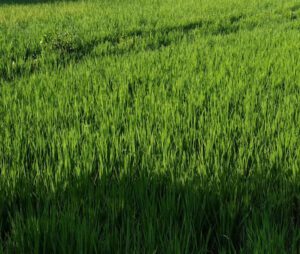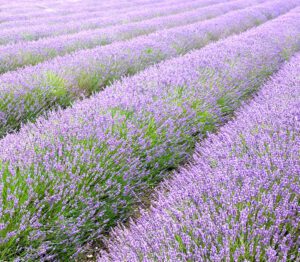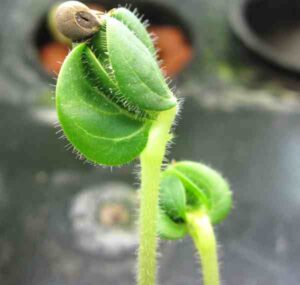Cinnamon farming is a very old and traditional business in some areas. It is a very common spice and people are doing cinnamon farming from the ancient time. Cinnamon is actually a spice which is obtained from the inner bark of several tree species from the genus Cinnamomum. It is used as an aromatic condiment and flavoring additive. And it is used in a wide variety of cuisines. Common uses of the cinnamon are in teas, sweet and savory dishes, snack foods, breakfast cereals and many other traditional foods.
Cinnamon is an evergreen tree which is very easily characterized by it’s thick bark, berry fruit and oval-shaped leaves. Not all the species of trees of the Cinnamomum family are cultivated for spice. Rather, only a few Cinnamomum spices are grown commercially for spice. Cinnamomum verum (known as”Ceylon Cinnamon”) is considered to be “true cinnamon”, which was originated from Sri Lanka (formerly Ceylon).[1]
Today, the most common cinnamon in the international market is derived from 4 other species. These 4 species are Chinese cinnamon (or Chinese cassia), Indonesian cinnamon (or Padang cassia), Malabar cinnamon and Saigon cinnamon or (or Vietnamese cassia). Currently, cinnamon farming is very popular in many countries. Indonesia and China are the major producer of cinnamon. Indonesia and China produced more than 70% of cinnamon in the year of 2018.
However, commercial cinnamon farming is a very good and profitable business. And you can start this business commercially for making money.
Uses of Cinnamon
Cinnamon is mainly used as an aromatic condiment and flavoring additive in a wide variety of cuisines, sweet and savory dishes, teas, snack foods and traditional foods. Ground cinnamon is 81% carbohydrates, 11% water, 4% protein and 1% fat. It is full of antioxidants, anti inflammatory properties and has a powerful anti-diabetic effect. Regular uses of cinnamon in foods may cut the risk of heart disease. Bark and leaves are mainly used as spice.
Advantages of Cinnamon Farming Business
Like many other agribusiness, commercial cinnamon farming has numerous advantages. Here we are trying to describe the top advantages of commercial cinnamon farming business.
- Starting commercial cinnamon farming is relatively easy and simple as compared to other spice or crop farming business.
- You can start this business even if you are a beginner.
- Large scale or commercial production of cinnamon is very profitable.
- Commercial cinnamon farming is a very old and traditional business and many people are doing this.
- You don’t have to worry much about starting and operating this business. Because you will probably be able to find help from the existing farmers in your are.
- The cinnamon plants are relatively strong and hardy, and they generally grow well without caring.
- Both demand and value of cinnamon are high in the domestic and international market. So, profits are good from this business.
- Marketing cinnamon is very easy and simple. You can also target international market.
- Production cost in commercial cinnamon farming business is relatively less. But the profit is good enough.
- As commercial production of cinnamon is very profitable, so it can be a good employment source for the people. Especially for the educated but unemployed young people.
- Cinnamon is nutritious and it has numerous health benefits. You can enjoy fresh cinnamon if you start your own production.

How to Start Cinnamon Farming?
Starting commercial cinnamon farming business is relatively easy and simple. Here we are trying to describe more information about starting and operating a successful cinnamon farming business from planting, caring to harvesting and marketing.
Site Selection
Cinnamon plants can be grown in a wide range of soils. The plants can be grown from organic-rich loamy soils to poor sandy loam soils. Having organic content rich soil will be very helpful in better bark quality.
Prepare the Soil
Preparing the soil perfectly before planting cinnamon plants is very important. Plough the land well and add as much organic content as you can. Also ensure a good drainage system for higher cinnamon yields.
Climate Requirement For Cinnamon Farming
Cinnamon plants can tolerate a wide variety of climatic conditions. They thrives well at an altitude of about 1,000 meter and a yearly rainfall of 200-250 cm. Hot and humid climate is very good for commercial cinnamon farming business. Average temperature of 27°C is considered ideal for cinnamon production.
Choose a Variety
There are many varieties of cinnamon available throughout the world to choose from. You can choose any variety depending on it’s availability in your area. You can consult with an expert in your area for having better recommendations.
Propagation
Cinnamon plants are generally propagated through seeds. And also through vegetative propagation through cuttings and air layers.
Purchase Seeds/Cuttings
You can easily purchase cinnamon seeds or cuttings from the market. You can also purchase the plants from any of your nearest nurseries.
Planting
First of all, dig pits of 50 cm at a spacing of 3 meters by 3 meters. Then fill the pits with organic compost and topsoil before plantation. Try to plant the cinnamon plants from June to July for better establishment of the seedlings. One-year old seedlings are very good for planting in the main field. Try to plant the seedlings during afternoon, and providing partial artificial shade in the initial stage will be very beneficial.
Caring
The cinnamon plants are generally very strong and hardy. But taking additional caring of the plants will help the plants to grow well and produce better. Here we are trying to describe the common caring process of the cinnamon plants.
Fertilizing: A fertilizer dose of 20 grams nitrogen, 18 grams phosphate and 25 grams potassium is recommended per plant for the first year. Then increase this dose gradually to 200 grams nitrogen, 180 grams phosphate and 200 grams potassium for grown-up plants of 10 years and above. Apply 30 kg of farm yard manure and 4 kg of neem cake per plant after 3 years of planting the seedlings. Apply the fertilizers into 2 doses in May to June and September to October.
Irrigation: Adequate irrigation is a must during the summer months. Watering the plants twice a week will be enough. Although, water requirement depends upon the soil moisture level and also on the growth of the plants. Cinnamon is actually a rain-fed crop. And an annual rainfall of 200 to 250 cm is ideal for it’s cultivation.
Controlling Weeds: Weeds consume nutrients from the soil, and the cinnamon plants will suffer. So, try to control weeds regularly. 2 weeding in a year are required from June to July and from October to November.
Training And Pruning: Coppicing is a method of cutting back the height of the cinnamon plants to the desired height in a commercial plantation. This is done to manage the plant more effectively. Plants between 2 and 3 years of age are coppiced during June to July to a height of about 15 cm from the stump. A bunch of side shoots is produced by the main stem afterward and subsequently, the cinnamon plants assume the shape of a low bush of about 2 meter height.
Harvesting
September to November is the best time for harvesting the shoots. Side shoots having finger thickness and uniform brown color is ideal for bark extraction.
Yield
It’s very tough to tell the exact amount, because it depends on numerous factors. But on an average, you can expect 62 to 125 kg quills per hectare from 3-4 years old plants, and from 225 to 300 kg quills per hectare from 10 to 11 years old plants.
Marketing
Marketing cinnamon is very easy and simple. You will probably be able to sell your products in the local market. Although, you should set your marketing strategies before starting this business.
These are the common steps and ways for starting and operating a successful cinnamon farming business. Hope this guide has helped you! Good luck and may God bless you!






